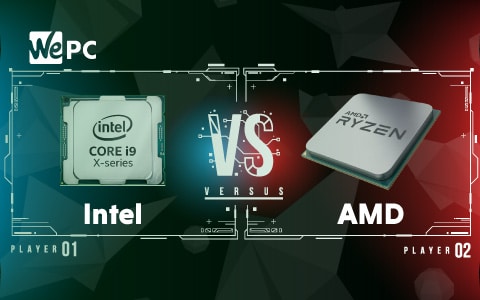Choosing a laptop is challenging enough, and the ambiguity generated by the sheer number of CPU kinds and names only complicates matters. You may move from being an inexperienced laptop buyer to an expert in the market with the right information.
The core of each computer or laptop is its CPU. This is where the majority of the computer's tasks are completed. A processor that meets specific requirements while remaining economical is essential for anything from everyday bad internet browsing to playing high-graphics video games.
The faster the processor, the better the performance of your games and apps. Rather than delving into the specifics of each processor, it is better to envisage what software and games you would like to run. You should be able to identify the laptop and processor that best suit your needs based on what you use the most.
Before we dig through these processors, it’s important to note that there are only two companies that manufacture processor, Intel and AMD. So, let’s examine which should you choose when buying a laptop.
Intel vs AMD as in terms of:
1. Pricing

The AMD Ryzen 9 3950X, for example, is undoubtedly the most expensive model in the lineup, costing roughly $750 (£580, AU$1130). However, the sticker shock you're experiencing is backed up by some excellent technologies. The Ryzen 9 3950X has 16 cores and 32 threads, which is one more than the previous flagship, the Ryzen 9 3900X. The Ryzen 9 3950X not only has more cores and threads than its predecessor, but it also has larger cache memory and higher processing rates. Coffee Lake Refresh CPUs are probably what most people are familiar with when it comes to Intel. Intel's latest Coffee Lake Refresh CPUs include the i9-9900K, which costs roughly $550 (£420, AU$830) and features 8 cores as well as native integrated graphics.
2. Specifications
As you may have noticed while browsing specifications, AMD has its Ryzen 3, Ryzen 5, Ryzen 7, Ryzen 9, and Threadripper lines, whilst Intel has its Core i3, Core i5, Core i7, Core i9, and Cascade Lake-X families. When AMD versus Intel CPU characteristics are compared, it is clear that AMD offers alternatives with more cores and/or threads, greater cache, and extensive PCIe 4.0 compatibility for the mid-range and high-end. AMD has a powerful Ryzen CPU that delivers greater value than equivalent Intel models from the top of the High-End Desktops (HEDT) market to the high-end and mid-range. In the budget class, Intel now reigns supreme, but that may change with the launch of AMD's powerful APUs in the coming months.
3. Gaming and Overall Performance

In the AMD vs Intel CPU showdown, AMD leads in the important pricing bands, notably in the middle and upper tiers of its stack, but benchmarks indicate that Intel's gaming performance is no wimp, either. In regards of performance, both Intel and AMD are excellent. AMD's constant pressure has resulted in a resurgence in CPU performance for desktop PC gaming, prompting Intel to respond with more powerful processors of its own. Taken as a whole, both firms have incredibly competitive chips in their respective pricing bands and it's often difficult to tell the difference in real-world gaming.
In Conclusion
When it comes to clock speed, Intel still reigns supreme. This might undoubtedly be advantageous for die-hard gamers. When it comes to cores and threads, AMD has the upper hand. Except in the Pro market, an AMD Ryzen processor is frequently slightly less expensive than an Intel Core processor. Which processor you choose will be determined by brand preference, but above all, choose one that meets your demands. If you still can’t decide after reading this article, you can buy laptops at Honor website, because the Honor MagicBook Series offers Intel and amd ryzen laptop variants of each model of their laptop in their market and definitely you can find the one that suits you best.
